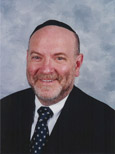SPEED DAVENING
Coming to morning minyan is, for me, one of the highlights of my day. Lately I've been wondering--and occasionally lamenting--about how quickly some readers go for the morning service. I'm a very slow reader, having had to teach myself to read Hebrew. Morning prayers are important to me, and I genuinely feel them as I read aloud or silently. But there are one or two leaders who go so fast, there is no way I can keep up. In fact, even when I just swing my eyes across the words and lines, these speed-readers are getting to the out-loud sentence(s) way before it's humanly possible! The other day, just for fun, I timed one leader, and he was somehow able to silently "read" 21 lines of text in less than 4 seconds.
So, I guess what I'm wondering is:
Do you think you could help me learn to read a little faster? I do practice, but I am still plodding along through a lot of the words.
I know the morning minyan is filled with people who have to get to work (including me), but is there any way to slow down some of the prayers? Sometimes the reader is through with the Amidah way, way faster than I can ever imagine getting through it, so by the time I am finished, we are several pages/prayers ahead. It seems to me that if we finished five or six minutes later, it wouldn't be so bad.
Reb Slow-Poke
Dear Reb Slow-Poke,
First of all, I love the fact that you go to the morning minyan. What a great way to start the day—and what a mitzvah!
The issue you raise about speed reading is one that many synagogues face as morning prayers seem forever at odds with getting t work on time. The morning service moves quicker than the evening service for that reason. On the other hand, it is also clear to me, as I think you have probably surmised, that some leaders are just going so fast that they probably aren't reading the prayer itself, and that is a big problem.
In terms of getting you to read faster, that does come with time and practice. I sometimes think of prayer that is truly recited quickly--that is every single word recited--as a long mantra in which the translation or meaning of the words are secondary to the fact that these syllables, strung together in this sacred manner and recited in this way for centuries, is now being recited again. It brings life to the dead generations who recited these words. And so much of Judaism is the way in which life conquers death. But leave it to the Jews to create a mantra consisting of thousands of syllables! We're so verbal!
What does it mean to fully pray any how? Does it mean to "get through" all the words? And if you get through all the words, is that enough or did you have to say those words with meaning? I think that by devoting a certain portion of the day to God, no matter how many or how few words one recites in that period, the davening is complete as long as it was done with sincerity. So my recommendation to you would be not to worry about your tempo--that will increase over time. But focus on the prayers that you need to or that speak to you most and with each week, month, year, etc. more such prayers will be added to your morning repertoire.
Take care and Shalom--
The CyberRav
Rafi Rank
Return to Cyber Rav ArchivesBack to Top


